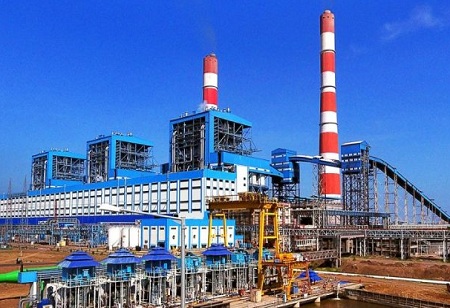The National Thermal Power Corporation (NTPC) Ltd. would start a feasibility study for a 130-MW floating solar power project on Dumbur Lake in Tripura's Gomati district. With the government working hard to grow renewable energy significantly, the northeastern state has raised solar power energy from 4.07 MW to 7.21 MW during the last five years. A Memorandum of Understanding (MoU) has been signed between the NTPC and the Tripura Renewable Energy Development Agency (TREDA) to carry out the feasibility assessment for the floating power plant.
At Ramagundam in Telangana, NTPC runs a 100 MW floating solar power project. According to TREDA Joint Director Debabrata Sukladas, the NTPC would assess the extent of the waterbody that must be taken up for the project, identification of nearby transfer stations, and forest clearance for constructing the state's first renewable energy
plant as part of the study. NTPC should finish the feasibility study, which will cost Rs 450 crore, in a few months. "The state's goal of producing 200 MW of solar energy by 2030 depends on the projected 130-MW floating power plant,'' the statement continued. The average solar energy potential of the state is 2080 MW. The Tripura Power Generation Company, Tripura State Electricity Corporation (TSECL), and TREDA are all working hard to unlock the state's solar energy potential, according to Sukladas.
In order to deliver solar energy to interior tribal settlements where conventional power supply is unprofitable, TREDA has also started a process. "The installation of the solar microgrid has been completed in 17 tribal habitations while work is in progress for 50 more habitations at a cost of Rs 5.70 crore," he said, noting that the Centre has approved a Rs 80 crore project in principle that will provide solar power to as many as 274 habitations.
The benefit of a floating solar power plant is that it requires less land, mostly for associated evacuation plans. Additionally, the presence of floating solar panels reduces the rate of water evaporation from water bodies, aiding in water conservation. The source claimed that so far, 1,659 solar-operated pumps have been installed at a cost of Rs 112 crore, successfully implementing the PM-KUSUM project in rural parts of the border state in terms of assured irrigation.
The Pradhan Mantri Kisan Urja Suraksha evam Utthaan Mahabhiyan Scheme aims to protect farmers' access to energy while upholding India's pledge to reach a 40% share of installed capacity for non-fossil fuel sources of electricity by 2030. Since the farmers now have access to guaranteed irrigation, a problem that had plagued them for years, he continued, "The PM KUSUM has increased the productivity of crops."
